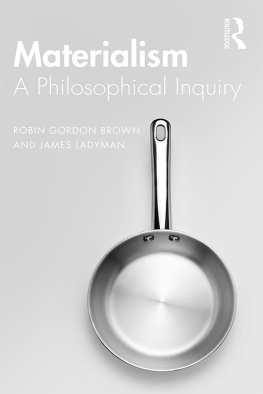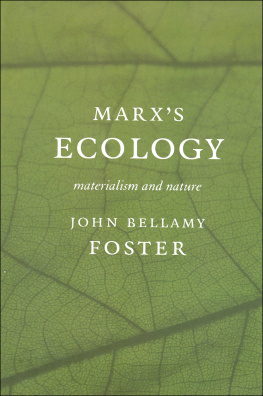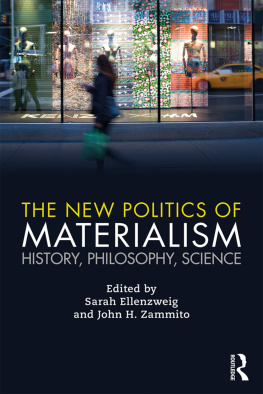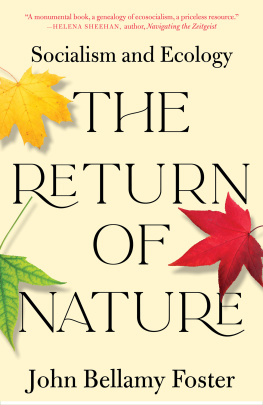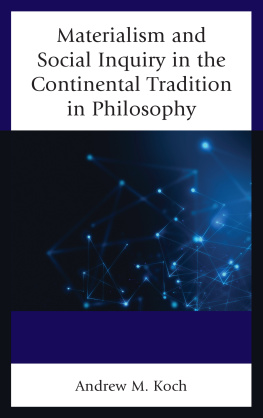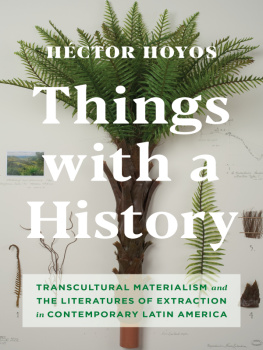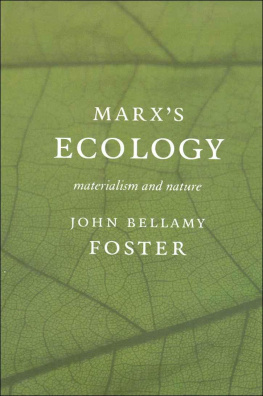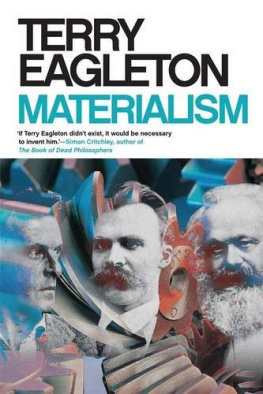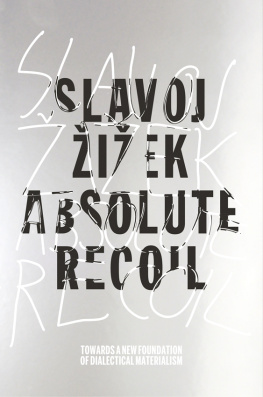Highly recommended for those interested in materialism as a perennial current in the history of philosophy and for those wondering how contemporary physicalism and naturalism connect with older materialist philosophies and politics.
William Lewis, Skidmore College, USA
Brown and Ladyman offer a clear exposition of philosophical materialism much needed in these muddle-headed times. Particularly refreshing is their stress on the essential incompleteness of the explanations it provides, which distinguish it as a scientific worldview from its more strictly philosophical rivals.
Thomas Uebel, University of Manchester, UK
Materialism
The doctrine of materialism is one of the most controversial in the history of ideas. For much of its history it has been aligned with toleration and enlightened thinking, but it has also aroused strong, often violent, passions amongst both its opponents and proponents. This book explores the development of materialism in an engaging and thought-provoking way and defends the form it takes in the twenty-first century.
Opening with an account of the ideas of some of the most important thinkers in the materialist tradition, including Epicurus, Lucretius, Hobbes, Hume, Darwin and Marx, the authors discuss materialisms origins, as an early form of naturalistic explanation and as an intellectual outlook about life and the world in general. They explain how materialisms beginnings as an imaginative vision of the true nature of things faced a major challenge from the physics it did so much to facilitate, which now portrays the microscopic world in a way incompatible with traditional materialism. Brown and Ladyman explain how out of this challenge materialism developed into the new doctrine of physicalism.
Drawing on a wide range of colourful examples, the authors argue that although materialism does not have all the answers, its humanism and commitment to naturalistic explanation and the scientific method is our best philosophical hope in the ideological maelstrom of the modern world.
Robin Gordon Brown is a Research Associate in the Department of Philosophy at the University of Bristol, UK.
James Ladyman is Professor of Philosophy at the University of Bristol, UK. He is the author of Understanding Philosophy of Science (2002) and editor (with Alexander Bird) of Arguing About Science (2012), both published by Routledge.
First published 2019
by Routledge
2 Park Square, Milton Park, Abingdon, Oxon OX14 4RN
and by Routledge
52 Vanderbilt Avenue, New York, NY 10017
Routledge is an imprint of the Taylor & Francis Group, an informa business
2019 Robin Gordon Brown and James Ladyman
The rights of Robin Gordon Brown and James Ladyman to be identified as authors of this work have been asserted by them in accordance with sections 77 and 78 of the Copyright, Designs and Patents Act 1988.
All rights reserved. No part of this book may be reprinted or reproduced or utilised in any form or by any electronic, mechanical, or other means, now known or hereafter invented, including photocopying and recording, or in any information storage or retrieval system, without permission in writing from the publishers.
Trademark notice: Product or corporate names may be trademarks or registered trademarks, and are used only for identification and explanation without intent to infringe.
British Library Cataloguing-in-Publication Data
A catalogue record for this book is available from the British Library
Library of Congress Cataloging-in-Publication Data
Names: Brown, Robin (Robin Gordon), author. | Ladyman, James, 1969- author.
Title: Materialism : a philosophical inquiry / Robin Brown and James Ladyman.
Description: Abingdon, Oxon ; New York : Routledge, 2019. | Includes bibliographical references and index.
Identifiers: LCCN 2019000841| ISBN 9780367201333 (hardback : alk. paper) | ISBN 9780367201340 (pbk. : alk. paper) | ISBN 9780429259739 (ebk.)
Subjects: LCSH: MaterialismHistory.
Classification: LCC B825 .B74 2019 | DDC 146/.3dc23
LC record available at https://lccn.loc.gov/2019000841
ISBN: 978-0-367-20133-3 (hbk)
ISBN: 978-0-367-20134-0 (pbk)
ISBN: 978-0-429-25973-9 (ebk)
The principal aims of this book are to provide the reader with an introduction to the history of the philosophical doctrine of materialism and to outline the elements of contemporary materialism, now known, for reasons explained in the text, as physicalism. The references provided serve as a guide to further reading for those readers who wish to pursue both these areas in greater depth. The book has been written with the non-specialist reader in mind, but it is also intended to be of interest to those working in both philosophy and the history of ideas.
The chapters are of quite different kinds. is a general introduction to the basic ideas at the heart of materialist philosophy. Relations to rival and kindred philosophical traditions are discussed.
cover the historical development of materialism from the first millennium bce up to the conclusion of the nineteenth century ce. A short summary of such a huge topic is necessarily very selective, but the material chosen gives a general overview of the intellectual climate of the relevant period, and describes the place of materialist thought in that setting. An account is given of the work and influence of key philosophers who have a significant place in the history of materialism.
contain the core philosophical ideas and theses of contemporary materialism, and are the most demanding. They explain the concept of supervenience, which has a central place in contemporary physicalist thought, and discuss its far-reaching implications.
is the concluding chapter. It considers the place of physicalism in the contemporary philosophical scene and in modern society at large. As may be evident, materialism is a philosophical doctrine that is not and cannot be confined to academic cloisters.
It may seem foolhardy to write a brief introductory book for the general reader in a field as contentious as philosophy. The authors are likely to be admonished for partiality, selectivity, over-simplification and subjective bias, and are likely to be guilty as charged, to a greater or lesser extent. Nonetheless, in the case of materialism it is important to undertake this task because, of all topics in epistemology and metaphysics, which together lie at the heart of philosophy, it is one of the most significant for people who otherwise have little or no interest in philosophy.
Ideas about what kind of stuff the world is made of have always been at the forefront of human thought, in some form or other, and few if any philosophical theories have aroused as much passion. The wars of religion in Europe that followed the Reformation may have had their origins in disputes about money-making by the Church, but denying the doctrine of the Trinity or that of Transubstantiation both of which are purely metaphysical doctrines became illegal. At different times and in different societies there has been extraordinary intolerance for some answers to ontological questions those concerned with the issue of what sort of stuff exists. Even today there are several countries where it is a capital offence to have certain beliefs about the nature of the world, and about what kinds of things there are.
There are two interconnected strands to the history of materialism; there is the intellectual development and exposition of the philosophical claim, and there are the lives of materialist thinkers and philosophers who, while not materialists themselves, have played a key part in the development of materialism. This book discusses both. It is somewhat partisan in being admiring of the great thinkers in the materialist tradition, which includes one of the greatest poets of the ancient world, Lucretius. This admiration is partly for the ideas, but it is at least as much for the stance these thinkers have taken in the intellectual, social and political world they inhabited.

